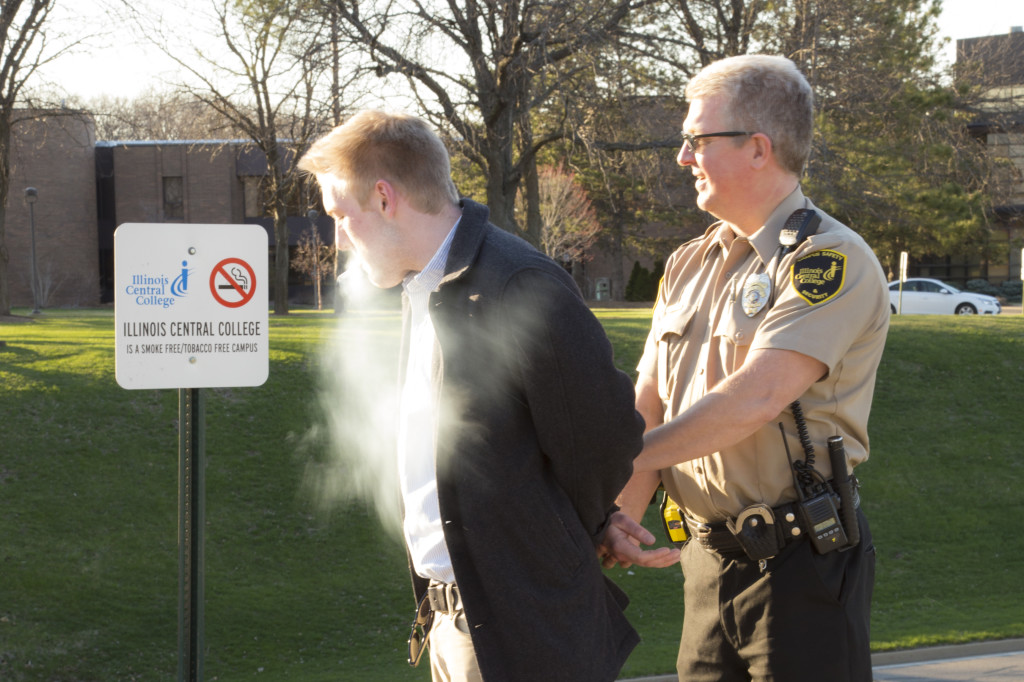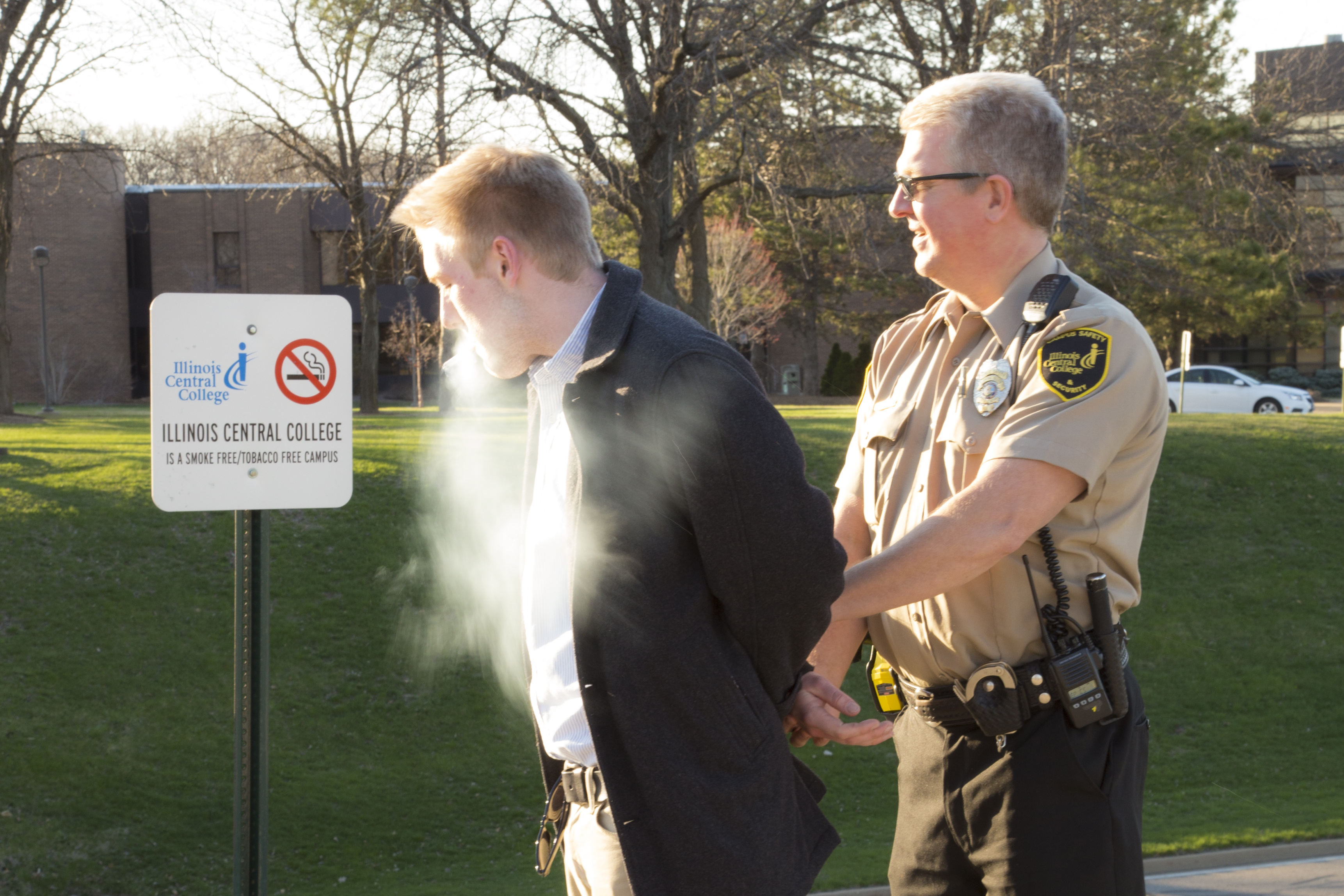No Smoking on Campus, Period.

SPRINGFIELD — Thanks to a piece of state legislation, the majority of Illinois college students are about to be given a breath of fresh air, even though some would rather have smoke.
In a bill that has been more than a year in the making, the Illinois General Assembly is on the verge of making it illegal to smoke tobacco or other carcinogenic products anywhere on the property of Illinois Central College or any other state-funded college or university effective July 1, 2015.
The bill, SB 2202: Smoke-Free Campus Act, has just recently passed the House and needs one more approval vote from the Senate after the House made minor changes to the bill.
The bill cites “scientific evidence that secondhand smoke causes serious diseases, including lung cancer, heart disease, and respiratory illnesses such as bronchitis and asthma.” Furthermore, it states that “separating smokers from nonsmokers, cleaning the air, and ventilating buildings cannot eliminate secondhand smoke exposure.”
The text of the bill reasons that a smoking ban will effectively “reduce secondhand smoke exposure among nonsmokers as well as prepare students for the workplace and ensure a healthy environment for all campus communities.”
While ICC already has strict policies that limit smoking to a handful of designated smoking areas, this new law will eliminate those outdoor spaces. With the Smoke-Free Campus Act, it will also be illegal to smoke in personal vehicles that are parked on college property. These changes allow no opportunities for individuals to smoke at any time in any location.
Seven of the eight state representatives that fall within ICC’s district voted against the act. One of them, Rep. David Leitch said he felt that colleges “are perfectly capable of making decisions like this one without the General Assembly telling them what to do.”
This isn’t the first time that ICC has been presented with a totally smoke-free policy. Back in 2009, the college tried to completely remove tobacco use from its campuses, but social resistance and enforcement issues soon led to the softening of the policy and the creation of the current designated campus smoking areas.
“The challenge with any of these type of things, again, is enforcement,” said Bruce Budde, ICC’s vice president of administration and finance, “so we need to know how our campus police will enforce ‘no smoking on campus’ and how will that work?”
ICC employees will be affected by this law just as much as students, and Budde said that to help people make the transition, ICC may offer services to help individuals stop smoking.
“It’s our responsibility to our student population and our employees to get the information, get fully informed to make the right decision and hopefully help them along the path to quit smoking if that’s their interest,” said Budde.
Tom Larson, chief of the ICC police department, said that he didn’t “anticipate much push-back” to the new ban.
“It’s not a college policy, we’re talking state law, which is like every other state law,” said Larson. “People may not like a particular law or its motivations, but if it’s the law, I think people understand that it’s our job to enforce it as police officers.”
Budde still had his concerns regarding the enforcement of the ban, especially keeping people from smoking inside their own parked vehicles.
“At what point are you trying to get into somebody’s car and say ‘you shouldn’t be smoking?’ We don’t want to be the ‘smoking police’ either,” said Budde.


Definitely, what a great blog and informative posts, I surely will bookmark your website.Best Regards!
Thank you! We certainly appreciate your readership and hope you continue to support us and the ICC community.